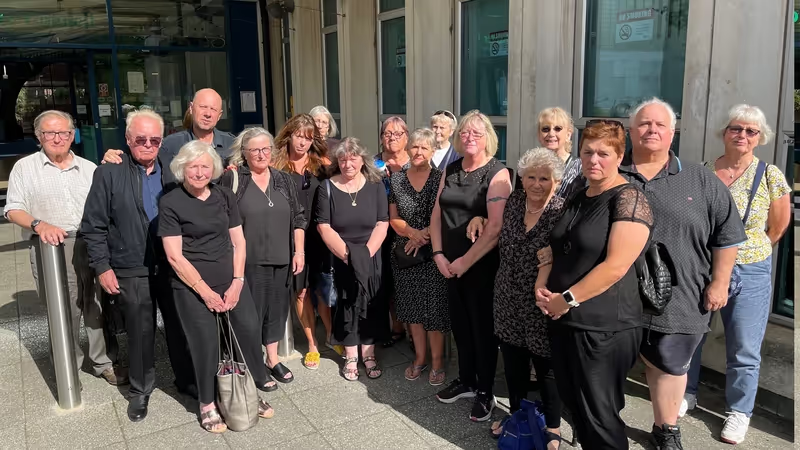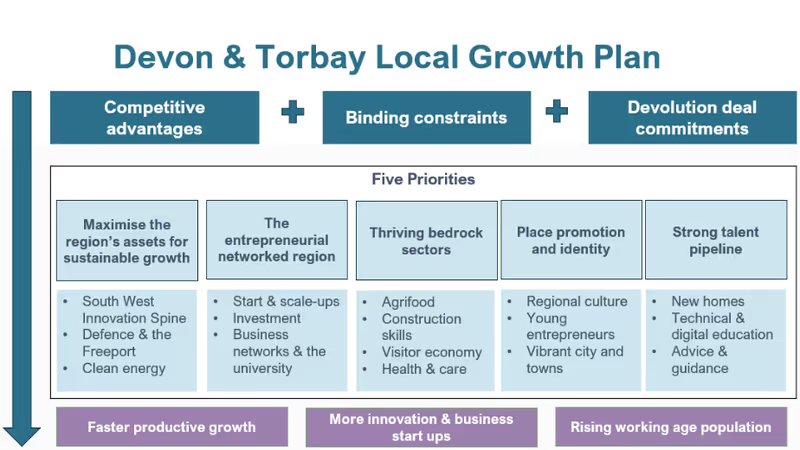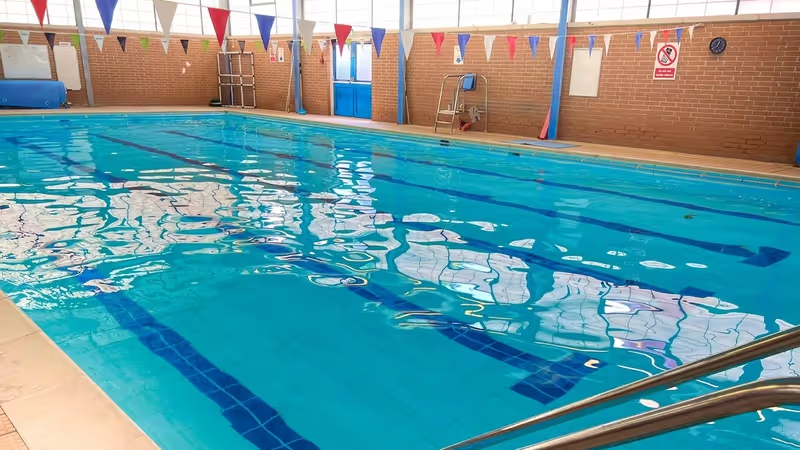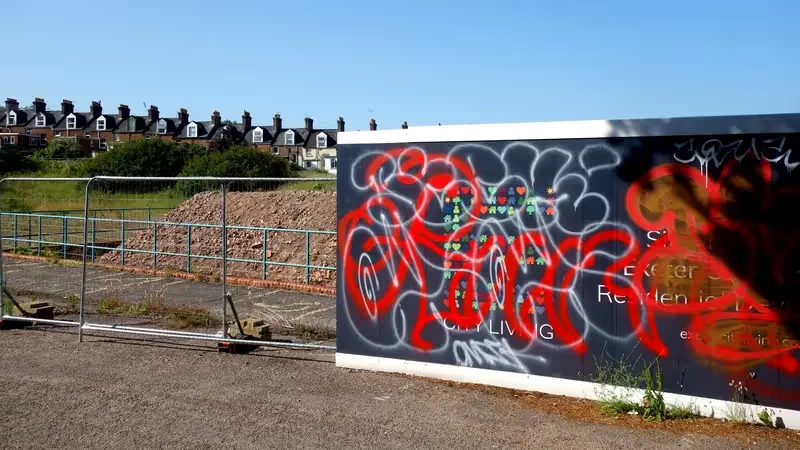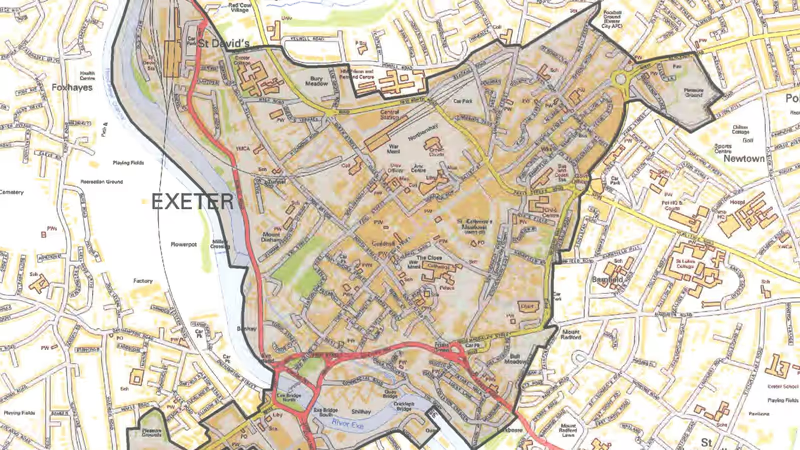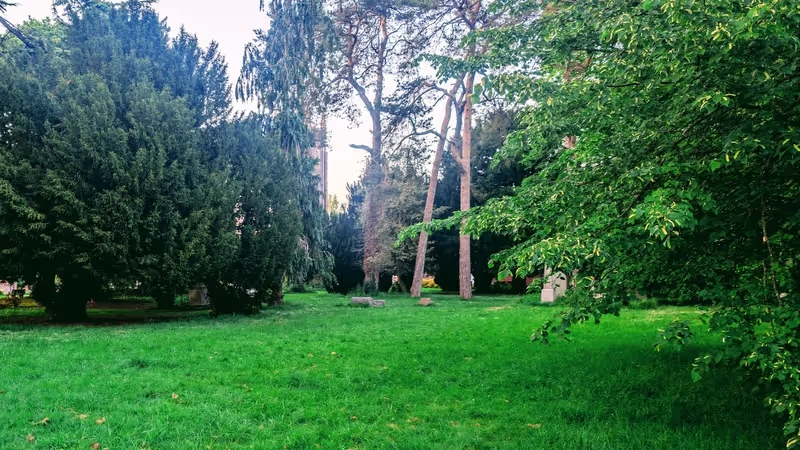Exeter City Council established the Liveable Exeter Place Board in 2019 to support the delivery of its “ambitious and visionary” Liveable Exeter programme. At the core of this programme is the aspiration to build 12,000 new homes in such a way that a series of communities are created which include retail and employment options and so reduce the need to travel across the city. It is intended to support the council’s goal of reducing the city’s carbon footprint to net zero by 2030.
Exeter Observer’s July 2020 report on the Place Board highlighted legitimate public interest concerns about its role, membership and lack of transparency. The board is unelected, meets in private, does not publish its discussions or decisions and is taking responsibility for major policies which will determine Exeter’s future. In addition, a significant number of place board members have known property and land interests.
Following that report the council took action to increase the under-representation of women and of people of colour on the board, a move also urged by some members of the city council.
Liveable Exeter Place Board membership
July 2020
- Chair of the Board - Sir Steve Smith, Vice-Chancellor, University of Exeter
- Councillor Phil Bialyk, Leader of Exeter City Council
- Rt Hon Ben Bradshaw, MP for Exeter
- Ian Cameron, Business Group Director, Met Office
- Lord Charles Courtenay, Earl of Devon
- Dinah Cox OBE, Chair of Trustees, Devon Community Foundation
- Paul Crawford, Chief Executive Officer, LiveWest
- Sarah Crown, Director of Literature, Arts Council England
- Dr Lee Elliot-Major, Professor of Social Mobility, University of Exeter
- Matthew Golton, Interim Managing Director, GWR
- John Hart, Leader of Devon County Council
- Karime Hassan, Chief Executive & Growth Director, Exeter City Council
- Steve Hindley CBE DL, Chairman of Midas Group
- Charles Johnston, Executive Director of Property, Sport England
- Simon Jupp, MP for East Devon
- John Laramy, Principal & Chief Executive, Exeter College
- Matt Roach, Chairman Exeter Chamber of Commerce & MD Exeter International Airport
- Tony Rowe OBE, Chief Executive & Chairman, Exeter Rugby Club
- Shaun Sawyer, Chief Constable, Devon & Cornwall Police
- Lady Lucy Studholme, Chair of Board of Trustees, Exeter Northcott Theatre
- Julian Tagg, Chairman ECFC and City Community Trust
- Suzanne Tracey, Chief Executive, Royal Devon & Exeter NHS Foundation Trust
- Mike Watson, Managing Director, Stagecoach SW
- Glenn Woodcock, Director of Oxygen House.
Additions reported September 2020
- The Right Reverend Robert Atwell, Bishop of Exeter
- Mike Gallop, Western route director, Network Rail
- Claire Kennedy, licensee and curator, TEDxExeter
- Kalkidan Legesse, social entrepreneur and managing director at Sancho’s shop
Subsequent changes
- Sir Steve Smith retired as vice-chancellor of the University of Exeter, but remained chair of the board
- Professor Lisa Roberts, his successor as vice-chancellor, joined
- Clodagh Murphy replace Matt Roach as Exeter Chamber chair
- The Very Reverend Jonathan Greener, Dean of Exeter Cathedral also joined.
At the time we asked the council a series of questions intended to shed some light on how the Place Board functioned. It answered six of our eight questions by referring to material on a website that did not exist when they were asked and which was created following our enquiry. The website offers partial information about the programme and the board, somewhat increasing its accountability to the people it is supposed to serve, but does not include important information about the content of the board’s discussions.
We did ask for this information: one of our questions was a request for a list of the items discussed at each board meeting as set out on the convening agenda. The council refused to supply this, citing a bizarrely irrelevant provision in the Freedom of Information Act. We challenged this refusal, which was subsequently overturned. The information we received is published below.
Meanwhile, the board’s membership changed again. Apparently not content with having the Bishop of Exeter representing the Christian faith, the council subsequently added the Dean of Exeter Cathedral. The Dean is in effect the managing director of the cathedral, and may have been seen as a better fit with all the other property interests on the board. The Dean’s appointment gave the Church of England two seats on the board while other faiths and churches in the city remain unrepresented.
We requested an explanation as follows: “Why does the Board contain two representatives of the Church of England (the Bishop of Exeter and the more recent addition of the Dean of Exeter Cathedral) and none representing any other faith organisation? Exeter’s population is diverse, so if faith is important to the Board, it seems odd to have the CofE [Church of England] so disproportionately represented?”
The city council’s reply was unexpected: “The board brings together leadership from across the city, public and private sectors, politics, personal views and backgrounds. All however give their time and energy freely to try to make Exeter a better city. Suggesting otherwise via a partisan narrative bears no resemblance to fact.”
Quite apart from the fact that we made no comment about the motives of board members, it is the suggestion that we have adopted a “partisan narrative” that bears no resemblance to fact.
A core purpose of independent public interest journalism is to hold influence and power to account by gathering and reporting information that people in leadership roles and other powerful interests might rather remained hidden. The only perspective from which this purpose might be considered partisan is that of those in leadership roles who do not enjoy being subject to scrutiny.
It is fair comment that Exeter Observer has been constructively critical of the lack of accountability and transparency surrounding the board, and that we have published material about it that it appears some people would prefer not to be in the public domain.
We make no apology for serving the governed, not the governors. We seek to inform, educate and empower the former while holding the latter to account by challenging their decisions in the public sphere. We aim to keep people who live or work in Exeter informed of what’s being done in their name, by whom, with the community assets they own and the taxes they pay.
Of course, the excuse offered by the city council may simply be a fig leaf intended to conceal its inability or unwillingness to provide a rationale for the Dean’s appointment. We do not know. Perhaps, as Exeter is among the country’s least affordable cities in which to live, the Dean will promote a recent commission set up by the Archibishop of Canterbury which said housing affordability must be linked to people’s incomes rather than discounting the market rate?
And what the board actually does remains opaque. The agendas we obtained by challenging the council’s refusal to disclose do, however, give an idea of the scope and range of its discussions. The board additionally met on six occasions during the period from 26 March to 4 June 2020 “to discuss matters related to the Covid-19 pandemic”. No agenda information was supplied for these dates.
Liveable Exeter Place Board agendas
17 December 2019
- Welcome & Introductions
- Exeter Vision 2040
- Liveable Exeter Transformational Housing Programme
- Hilton Barnfield’s RIBA commission under Future Place
- Delivering Liveable Exeter garden city
- Sport England Local Delivery Pilot proposals for Wonford
- Draft Exeter Transport Infrastructure Prospectus 2020-2025
- Exeter Live Better brand
5 March 2020
- Welcome from the Chair
- Introduction and apologies
- Minutes and Actions from December’s meeting
- Exeter Live Better brand and the Cultural Compact
- The emerging Exeter Transportation Strategy and its relationship to bus provision within Exeter
- Sandy Park Hotel, conferencing and stadium development and links to future transport provision
- The Local Industrial Strategy and its alignment to the Great South West proposition
- The Liveable Exeter programme
- Future Place update
- Any other business
8 July 2020
- Welcome from the Chair, with introductions and apologies
- Minutes and Actions from March’s meeting
- Exeter Live Better brand and the Cultural Compact
- The Liveable Exeter programme update
Recovery:
- Test and Trace
- Group updates
- An example of Actions and Asks from the Construction and Development group
- Place Board comms and Exeter Observer enquiry
- Sports England and Local Delivery Pilot governance paper
- Any other business
7 October 2020
- Welcome from the Chair
- The Recovery Plan, Exeter: Building Back Better
- Cultural Landscape paper
- Exeter City Fund, proposition and update
- The Liveable Exeter programme Update
- White Paper on planning reform
- Any other business
Following a refresh, the Liveable Exeter website now includes a summary of the most recent board meeting on 10 December 2020. It suggests that the only substantive item of business was a presentation about the city’s cultural strategy. Apart from this implying a dramatic reduction in the board’s remit, this is hardly the stuff of “frank and candid confrontation of the issues”, which are the kind of discussions which the council claims make it necessary to keep the content of board meetings secret. Or perhaps the juicy stuff did not make it to the summary?
Our previous report set out in some of the intended responsibilities of the board, which included (our italics):
- Develop and set joint investment strategies for the city and sub-region
- Develop an infrastructure plan in support of the Liveable Exeter Garden City and as and when required the Greater Exeter Strategic Plan and associated sub-regional transport strategy
- Consider and prioritise bids for external funding, including leading on housing, industrial and other appropriate deals
- Consider, approve and implement decisions relating to Exeter and as appropriate subregional investment, including expenditure of external funding within the sub-region.
At the time of writing, we did not know whether these responsibilities had in fact been assigned to the board, but it is now clear from a list of nineteen roles since published that these functions, and many more, are indeed included in the board’s remit.
These wide-ranging and critically important functions have been handed to a body that is unelected, to which appointments were made on the basis of unknown criteria, for which there was no public invitation to express interest in joining, and which makes no pretence of consulting others about its analysis, discussion or decisions.
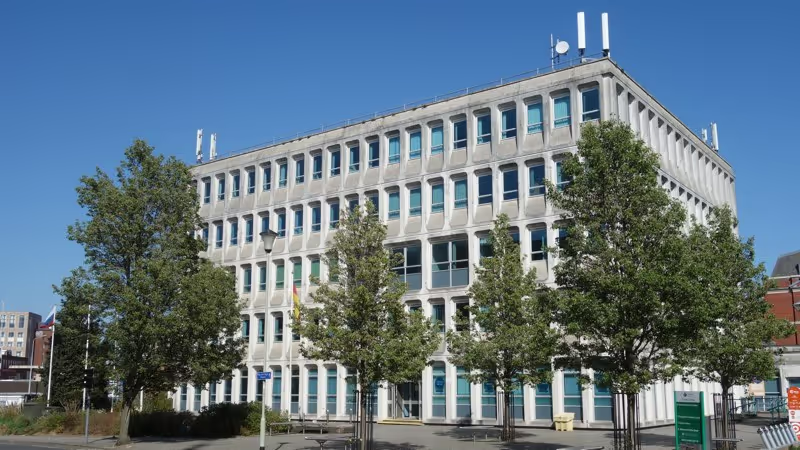 Exeter City Council offices on Paris Street
Exeter City Council offices on Paris Street
While Exeter City Council has repeatedly said that any decisions that need to be made by the council will be brought to its committee machinery, and will thus be open to public scrutiny, there are several ways in which the accountability and transparency that this appears to promise could remain undelivered.
First, the council could choose to deal with such items in what is known as “Part 2” of committee meetings – that is, the part of the meeting from which press and public are excluded and for which supporting documents and reports are rarely supplied. The bar for doing so is not high, and the council frequently deals with issues it considers sensitive this way.
Second, it is likely that few of the board’s private conclusions will require a corresponding public decision, and so will remain secret. What is to stop a decision being discussed and agreed between board members for later presentation as a fait accompli by the council? The city’s chief executive, Karime Hassan, said in September that the board had already “amended” and “approved” parts of the city council’s 2018-2021 Corporate Statement in a report in which he justified the secrecy surrounding it on the grounds its members would not want the public to know what they were talking about in private.
Third, as the agendas above make clear, board members take actions resulting from discussions at meetings then report those actions back to the board. The city council last week described the Place Board as having “shaped Exeter’s recovery plan”, which it has repeatedly said is being “led” by the board. Which of the board’s actions that involve “shaping” the city’s future do not merit wider discussion or require more democratic involvement?
Exeter Observer recognises that the city council cannot deliver the Liveable Exeter agenda, which has many positive elements, on its own. We nevertheless believe that it will be more successful in achieving its goals by securing wider support from the whole of the city through open deliberation and meaningful community engagement instead of resorting to relying on secretive boards.
At the same time, we object to the city council mimicking Michael Gove’s Cabinet Office in refusing to disclose information on the grounds that it does not like the viewpoint of the person or organisation making the request.
Exeter City Council’s access to information policy begins by saying it is “committed to being an open and transparent council”. The policy goes on to say its aims are to:
- show transparency of decision making by the council
- improve and enhance the democratic process
- build public trust and confidence.
Neither the Liveable Exeter Place Board nor the city council’s responses to questions about it meet these standards. In fact, the council’s approach to the Liveable Exeter Place Board bears no resemblance to these standards at all.
